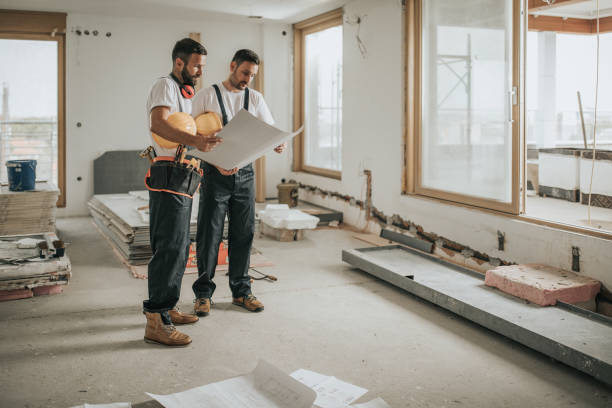Being a homeowner is a major commitment that calls for constant upkeep and repairs. Ignoring these important details might have expensive repercussions and eventually lower your property’s worth. In this comprehensive guide, we will delve into the essential home maintenance and repairs that every homeowner should prioritize. By understanding these key tasks and taking a proactive approach, you can ensure the longevity and resilience of your home.
I. Regular Inspections
A. Roof Maintenance
The roof is your home’s first line of defense against the elements. Conduct regular inspections to identify any missing shingles, leaks, or signs of damage. Replace damaged or missing shingles promptly to prevent water infiltration, which can lead to more extensive issues such as rot and mold.
B. Foundation Checks
A solid foundation is crucial for the structural integrity of your home. Periodically inspect for cracks, settling, or moisture issues in the foundation. Addressing these concerns early can prevent more severe problems and maintain the stability of your home.
C. Exterior Walls and Paint
Exterior walls protect your home from the elements and provide insulation. Inspect for cracks, peeling paint, or signs of water damage. Repaint as needed to protect against weathering and ensure your home’s aesthetic appeal.
II. Seasonal Maintenance
A. HVAC System
Regular maintenance of your heating, ventilation, and air conditioning (HVAC) system is vital for energy efficiency and indoor comfort. Replace air filters regularly, clean ducts, and schedule professional inspections to keep your HVAC system running smoothly.
B. Gutter Cleaning
Water damage can result from clogged gutters, particularly in the event of a strong downpour. Gutter cleaning should be done on a regular basis to avoid water overflow and possible harm to the foundation, siding, and roof. Installing gutter guards might provide additional security.
C. Winterizing Your Home
Take precautions to shield your house from the inclement weather as winter draws near. Seal gaps around doors and windows, insulate pipes to keep them from freezing, and make sure your heating system is operating at peak efficiency. These actions will lower energy expenses while maintaining the coziness of your house..
III. Essential Repairs
A. Plumbing
Addressing plumbing issues promptly is crucial to preventing water damage and maintaining a functional household. Fix leaks, replace worn-out seals, and insulate pipes in colder climates to prevent freezing. Regularly check for water stains, mold, or mildew, which may indicate hidden leaks.
B. Electrical System
In modern life, an electrical system must be dependable and safe. Upgrade electrical panels if needed, replace old wiring, and take quick care of any flickering lights or tripped circuits. To guarantee safety, have complicated repairs done by a professional electrician.
C. Appliance Maintenance
Home appliances play a significant role in daily life. Regularly clean and maintain appliances such as the refrigerator, dishwasher, and washing machine. Follow manufacturer guidelines for routine maintenance to extend their lifespan and prevent costly repairs.
IV. DIY vs. Professional Help
A. Knowing Your Limits
While many homeowners enjoy tackling DIY projects, it’s crucial to know your limits. Some tasks, such as electrical work or structural repairs, may require professional expertise. Assess the complexity of the job and don’t hesitate to seek professional help when needed to avoid safety hazards and ensure quality results.
B. Building a Reliable Network
Establishing a network of reliable professionals, including plumbers, electricians, and general contractors, is essential for efficient home maintenance and repairs. Research local service providers, check reviews, and build relationships with trusted professionals who can address your home’s specific needs.
V. Budgeting for Maintenance and Repairs
A. Creating a Maintenance Budget
Proactively budgeting for home maintenance and repairs can prevent financial strain when unexpected issues arise. Set aside a percentage of your monthly income for routine maintenance and establish an emergency fund for unexpected repairs. This approach will help you manage costs and maintain the overall value of your home.
Conclusion
Not only is upkeep and repair necessary for your house, but they also represent an investment in the lifespan and overall worth of your property. You and your family may keep ahead of any problems, save money over time, and create a secure and comfortable living environment by adhering to this thorough guidance and developing a proactive mentality. Recall that a pleasant and sturdy house is one that is well-maintained.


